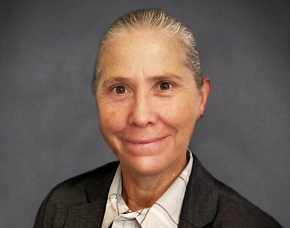About 13% of women in the United States have or will experience breast cancer at some point in their lives.1 Awareness of the risk factors (genetic, environmental, and behavioral) and importance of regular screening can mitigate cancer development or help catch it early when treatment is most effective.
Risk and Prevention
Some women are at a higher risk of developing breast cancer than others depending on certain genetic, environmental, and behavioral factors. Not all these risk factors are in your control, but others can be changed today. Getting regular exercise, eating a healthy diet, managing weight, smoking cessation, and lowering alcohol consumption can all decrease the risk of developing breast cancer.2,3 Although these interventions can help reduce risk, your genetics are outside of your control. In many families, genetics are the most powerful risk factor for developing cancer.
Genetic Testing
One of the ways to assess if you are at a higher risk for developing breast cancer is by receiving genetic testing. Genetic testing can identify gene mutations that increase cancer risk. Genetic testing is only recommended to those with a family history of cancer, especially if a first-degree relative (parent, sibling, or child) has been diagnosed with cancer at a younger age.4 Genetic testing takes a deeper look at your DNA to help you know if you have any genes that could increase your chances of ultimately developing cancer.
Understanding your risk can help you to take the appropriate precautions, such as getting mammograms at a younger age, getting mammograms more frequently, and receiving breast MRI scans in conjunction with mammograms, or more radical measures like preventative surgery and chemoprevention.4 BRCA 1 and BRCA 2 are two of the most common gene mutations associated with increased breast cancer risk.
Genetically Related Breast Cancer: What is BRCA?
BRCA 1 and BRCA 2 are abbreviations for Breast Cancer Gene 1 and Breast Cancer Gene 2, respectively. These genes are important in repairing DNA when cells are dividing normally. Everyone has these genes, but some people inherit harmful variants that make it so these damaged DNA cannot be repaired leading to an increase in the likelihood of developing cancer, especially breast and ovarian cancer. Certain populations are more likely to carry deleterious BRCA 1 or BRCA 2 mutations. For example, 2% of people of Ashkenazi Jewish descent will carry these harmful genes as opposed to only 0.2% of the general population.4 Genetic testing is the only way to identify BRCA 1, BRCA 2, and other harmful genetic mutations.
Screening Guidelines
Breast cancer screening is a regular clinical evaluation of the breast tissue even when there are no signs or symptoms of disease.5 Regular screening can identify cancer early when it is most treatable. The American Cancer Society recommends that women ages 50-54 years of average cancer risk receive a mammogram annually and that women 55 and older of average cancer risk receive a mammogram every 1-2 years.6 Women at a higher risk for developing breast cancer, such as those with harmful genetic variants identified through testing or a family history of cancer, often need to take more extensive precautions at much younger ages.
Talk to Your Health Care Provider
Cancer is complex. Only a medical professional can adequately counsel and treat you. If you think that you may have cancer or that you may be at a high risk for developing cancer, speak to your health care provider today.
References
- U.S. Breast Cancer Statistics. Breastcancer.org. https://www.breastcancer.org/symptoms/understand_bc/statistics#:~:text=About%201%20in%208%20U.S.,(in%20situ)%20breast%20cancer. Published February 4, 2021. Accessed May 18, 2021.
- What Are the Risk Factors for Breast Cancer? Cdc.gov. https://www.cdc.gov/cancer/breast/basic_info/risk_factors.htm. Accessed May 18, 2021.
- Breast Cancer Risk Factors. Breastcancer.org. https://www.breastcancer.org/symptoms/understand_bc/risk/factors. Published June 25, 2020. Accessed May 18, 2021.
- BRCA Gene Mutations: Cancer Risk and Genetic Testing. Cancer.gov. https://www.cancer.gov/about-cancer/causes-prevention/genetics/brca-fact-sheet. Accessed May 18, 2021.
- What is Breast Cancer Screening? Cdc.gov. https://www.cdc.gov/cancer/breast/basic_info/screening.htm. Accessed May 18, 2021.
- Breast Cancer Screening Guidelines for Women. Cdc.gov. https://www.cdc.gov/cancer/breast/pdf/breast-cancer-screening-guidelines-508.pdf. Accessed May 18, 2021.








